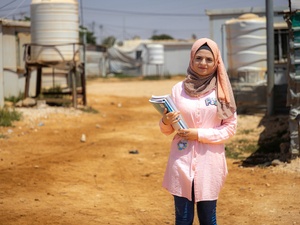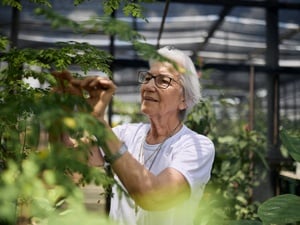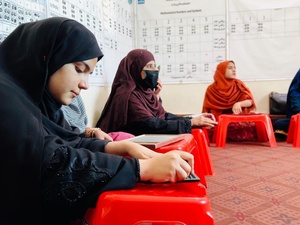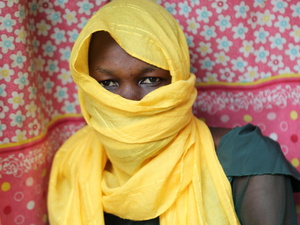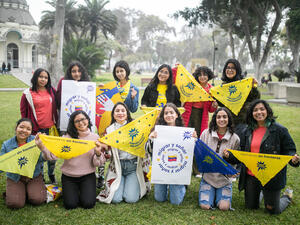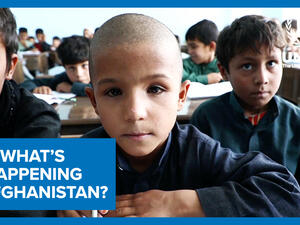International Women's Day Q&A: Serving the cause of Congolese women
International Women's Day Q&A: Serving the cause of Congolese women
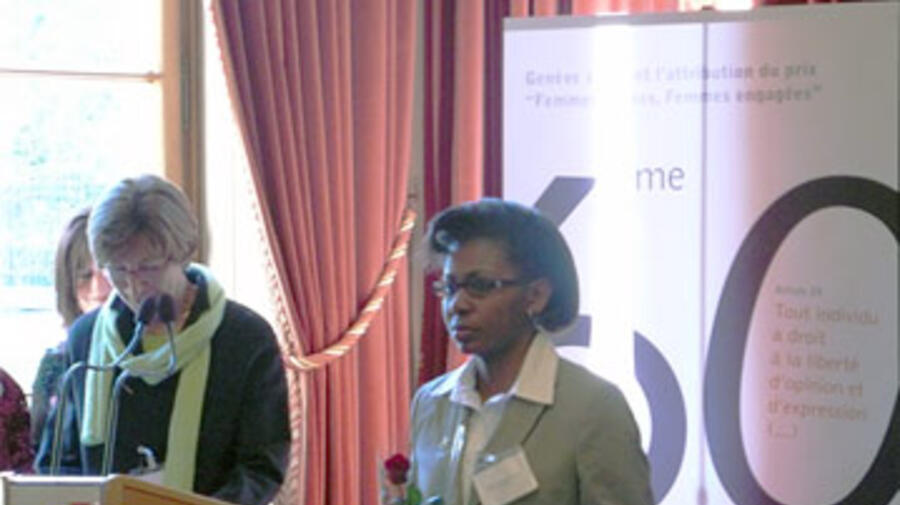
Denise Beutler at Thursday's award ceremony in Geneva's Palais Eynard.
GENEVA, March 7 (UNHCR) - Earlier this week, Swiss non-governmental organization Femme Exilée, Femme Engagée paid tribute to the courage of Denise Beutler, who has been promoting the cause of Congolese women since arriving in Geneva some eight years ago after fleeing North Kivu province in eastern Democratic Republic of the Congo. Beutler spoke to UNHCR Associate Public Information Officer Cécile Pouilly shortly after receiving her award in Geneva's ornate Palais Eynard on Thursday. Excerpts from the interview:
Tell us a bit about your background
I was born in Kinshasa [capital of the Democratic Republic of the Congo] and after I had finished my studies I went [in 1994] to work as a customs officer in eastern Congo - in Goma, capital of North Kivu province, to be precise.
I was living there during the massive influx of refugees from Rwanda and when the fighting broke out and the atrocities began. I got out after six years, but the abuse and conflict still goes on in eastern Democratic Republic of the Congo (DRC) and the Great Lakes region in general.
What is the focus of your fight for Congolese women?
My fight focuses on violence - more specifically on the rape of Congolese women in the DRC, which is used as a weapon of war. It is really sad to realize that all the different political movements openly indulge in violations of human rights. The government is unable to ensure that justice is done and thus give the victims the comfort and satisfaction of seeing their assailants condemned and punished.
I also think the international community minimizes this problem, which has caused so much damage already. The problem does not just stop at the actual rape. In many cases, children are conceived and they will never know who their father is - especially in cases of gang rape. And then there is the danger of catching a sexually transmitted infection, including HIV and AIDS. It is a pity that not enough resources are being made available to deal with these kinds of problems.
How important is this courage award to you?
It is mainly of moral importance. It is an encouragement for the fight we are leading. I say, "We," because of all the other women standing behind me, especially those who live in my country of origin and don't have the privilege that I enjoy of being able to speak out without fear in a democratic country where freedom of expression is guaranteed.
This award makes me even more determined to continue the fight, especially after speaking out publicly at the award ceremony in a city - Geneva - that is such a hub for major international and humanitarian organizations. I think this will have repercussions, not only in Switzerland, but throughout the rest of Europe. I have to credit [UNHCR's now defunct] Refugees magazine for giving me some visibility and helping me get selected for this award. The article [in Issue 145] gave me an opportunity to convey my message.
What role can migrant or refugee women play in host countries?
I am convinced that one day we will be able to go back to our homes, but while we are the guests of host countries we must do our utmost to serve as models to women back in our home countries; to encourage others - show them what their rights are and motivate them to break with the African tradition of silence, even when they are victimized. I think we are pioneers for those who stayed back home, and even for men.
Do you have a message for International Women's Day on Saturday?
I want to tell women, wherever they are in the DRC, Switzerland and around the world who have been subjected to violence, who feel rejected, who have no rights or freedoms - we stand by you.


